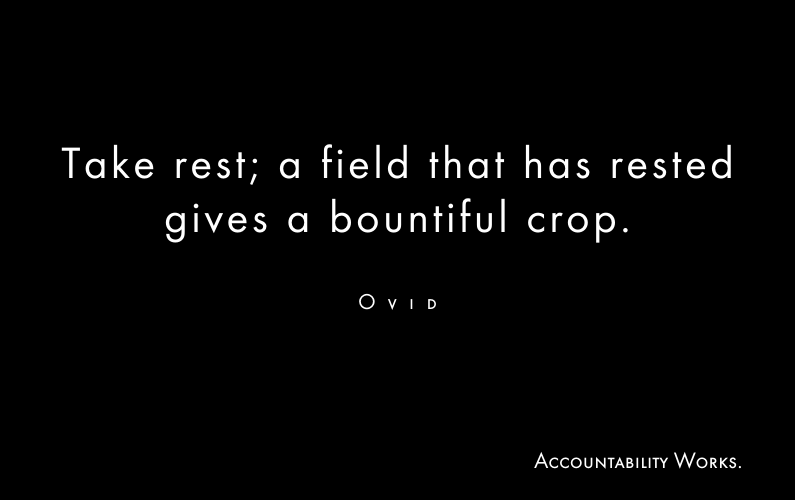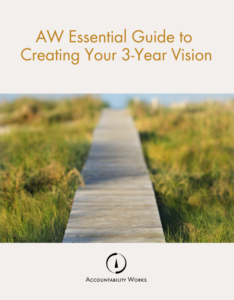Two Things Perfectionists Love about Accountability
It is interesting holding perfectionists accountable. Perfectionists gravitate toward accountability because it appeals to their list-making, checkbox filling tendencies. However they stick around for two reasons. One, it helps them prioritize. Oftentimes they are concerned with getting everything done that they lose sight of getting the right things done. Two, it helps them avoid burnout.
Positive and Negative Perfectionism
Perfectionism can be broken down into two categories: positive perfectionism and negative perfectionism. (Besharat and Shahidi, 2010)
Whereas perfectionism has been characterized as being positive when an individual derives pleasure from striving for excellence yet recognizes and accepts individual limitations, it is deemed negative when the individual has unrealistic expectations and is never satisfied with his or her performance.
I have one group member that definitely falls into the positive perfectionism category. She is constantly impressing me with her level of excellence. She is a go-getter, she makes a great living, she is a caring friend and family member, she gives back to her community, she’s focused on health, she is an AMAZING person. So why is she my example when clearly her perfectionism is an asset? Because she only misses her commitments or her accountability meeting when she is sick. I’ve noticed this cycle with her and other perfectionist clients. They have two modes, all in or out for the count.

My ears are now trained to listen for it. When I hear I was too sick or too tired to do something, I ask if this is a pattern? Where else is this showing up for them? It is often the case with perfectionists that they will not let themselves rest, slow down, not get all the things done until they are literally too sick or too tired to proceed as planned. So even though they come to us to get more done, the work is actually to get things done in a healthy, sustainable way.
Identifying Impending Burnout
The trick is identifying that our clients are on the path to burnout before it happens. It is not a formula because everyone’s goals and capacity for making and keeping commitments is different. We maintain focus by limiting the number of goals, and we try to keep the weekly commitments or actions relevant and high impact for that goal. However, burnout is sneaky and all of our clients are doing a lot of other things in addition to what they are committing to with us. The good news is that our process helps identify these patterns of behavior, and so if it is showing up here it is probably showing up in other areas as well.
Avoiding burnout requires a lot of self-awareness, compassion and a certain amount of rebelliousness. Perfectionists have been constantly rewarded for their behavior. However, we see over and over again that supporting perfectionists by helping them prioritize rest, incorporate white space, or take days off is essential. It results in a happier, healthier client who accomplishes their 12-week session goals without burning out at the finish line.



